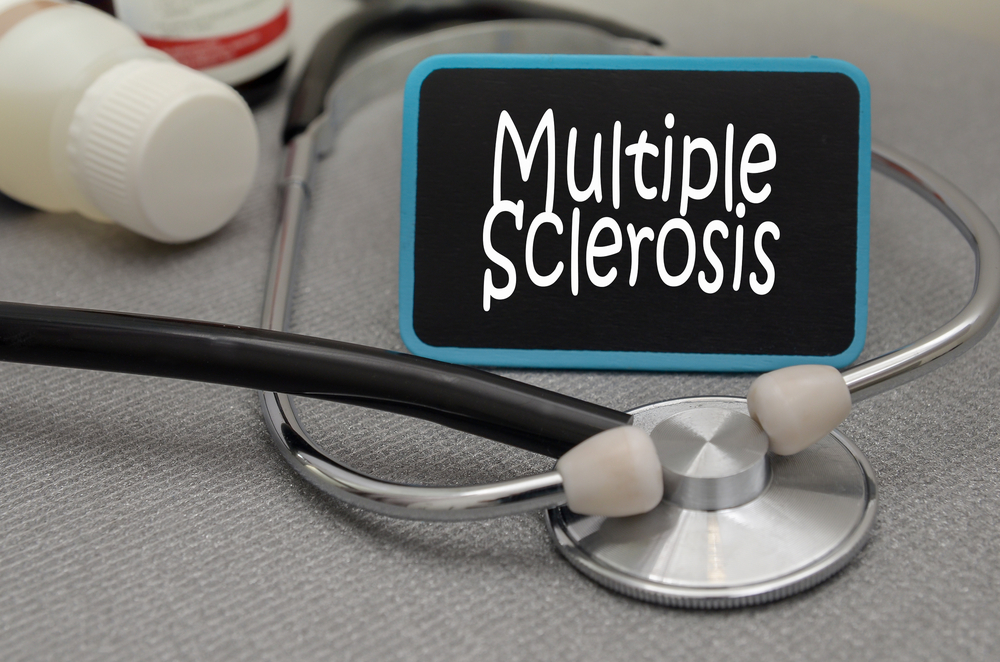Pretreating Ocrevus Patients with Multiple Antihistamines and Liquids Lowers Infusion Reactions by 60%, Study Reports
Written by |

Pretreating multiple sclerosis patients with antihistamines more extensively and with hydration can significantly reduce — by 60% — the likelihood of infusion-associated reactions that are the most common side effect of Ocrevus (ocrelizumab) use, a pilot study reported.
Data also found that older and male MS patients are less likely to have such reactions to this therapy, while heavier patients are more likely.
The research, “Reduction in ocrelizumab-induced infusion reactions by a modified premedication protocol,” was published in the journal Multiple Sclerosis and Related Disorders.
Infusion-associated reactions (IARs) to Ocrevus — an approved MS therapy developed by Genentech, owned by Roche — were seen to decrease in rate and severity with subsequent administrations in primary progressive MS patients who took part in the ORATORIO Phase 3 trial (NCT01194570). But they remain a challenge for many on Ocrevus, and may cause patients to stop treatment at less experienced centers.
Aiming to lessen the risk of IARs, a team at The University of Chicago established a modified premedication protocol, based on one previously designed for Lemtrada (alemtuzumab), an MS therapy marketed by Sanofi Genzyme. Specifically, the scientists compared the rate of IARs prior to and after implementing the protocol, and evaluated predictors of IARs in patients receiving Ocrevus.
A total of 207 patients were treated with Ocrevus at the University of Chicago Medicine MS Clinic. Their median age was 47 years, and 131 (63.3%) were women. The night before a September 2017 infusion, 110 patients (72 women, 65.5%) on the modified premedication protocol were instructed to take cetirizine (10 mg), ranitidine (75 mg), and encouraged to drink water or other liquids for hydration. Cetirizine is an antihistamine used to relieve allergy symptoms; ranitidine is an antihistamine used to lower stomach acid production.
This regimen was repeated the next day, prior to arrival at the clinic.
Immediately before an Ocrevus infusion, these patients were also given the antihistamine diphenhydramine at 50 mg and the corticosteroid methylprednisolone at 125 mg, both via intravenous infusion, as well as acetaminophen (650 mg), an oral pain and fever medication.
Researchers then reviewed data on all patients using Ocrevus at their center from March 2017 – when the medicine entered the market – to April 2018 to compare IAR rates between those on the modified premedication protocol and those on standard pretreatment (methylprednisolone at 100 mg and an antihistamine like diphenhydramine) prior to infusion. Parameters such as age, race, smoking status, sex, body mass index (BMI), years since MS diagnosis, and number of prior disease-modifying therapies (DMTs) taken were recorded.
IARs were defined as any adverse event occurring within 24 hours of receiving the first dose of Ocrevus. Reactions were either documented by a nurse during the infusion visit, or by telephone or in a follow-up visit if occurring later.
Results showed a 10% overall prevalence of IARs in patients on the modified premedication protocol, compared to a 21.6% prevalence in those on the standard protocol. Importantly, the odds of IARs with the modified premedication protocol were reduced by 60%, data showed. All infusion reactions were either grade 1 or 2, meaning mild or moderate.
Subsequent analysis found that the odds of IARs were lower with increasing age (6%) and male sex (66%), and increased (7%) with higher BMI. The researchers attributed the lesser risk associated with age and sex to the lower level of circulating immune B-cells (known to be involved in MS development, and the target of Ocrevus) in older and male patients. The reported increase in chronic systemic inflammatory responses linked to obesity may help explain the rise in reactions with a higher BMI.
Race and smoking did not affect the rate of IARs.
Researchers concluded that their modified premedication protocol “significantly decreases rates of IARs by 60%, and suggests that the additional premedication regimen is beneficial” to patients taking Ocrevus.
They emphasized that further studies are needed to confirm these results.


